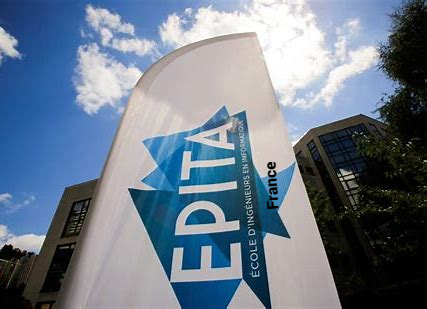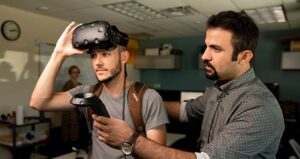

Introduction: The M.Sc. in Computer Graphics and Virtual Reality program at IMT Atlantique offers a unique opportunity to delve into the exciting fields of computer graphics, animation, and virtual reality. In a world increasingly driven by digital experiences, the demand for professionals skilled in creating stunning visual content and immersive environments is on the rise. This program provides a comprehensive curriculum that combines theoretical knowledge with practical skills, enabling students to explore the vast possibilities of computer-generated graphics and virtual reality technologies.
Subheading 1: Foundations of Computer Graphics In this program, students acquire a solid foundation in computer graphics principles and techniques. They learn the fundamentals of 2D and 3D graphics, including modeling, rendering, and animation. Through hands-on projects and assignments, students gain proficiency in industry-standard software and tools used for creating visually appealing graphics. They also explore topics such as lighting, shading, texture mapping, and visual effects, which contribute to the realism and aesthetics of computer-generated images.
Subheading 2: Virtual Reality and Immersive Environments Virtual reality (VR) is revolutionizing the way we experience digital content. Students in this program delve into the principles and technologies behind VR systems and immersive environments. They learn about 3D spatial perception, user interaction, and the design of immersive experiences. Through practical projects, students develop skills in creating virtual environments that mimic real-world scenarios, enabling users to engage with digital content in a highly immersive and interactive manner.
Subheading 3: Applications in Gaming, Simulation, and Digital Entertainment Computer graphics and virtual reality find extensive applications in industries such as gaming, simulation, and digital entertainment. Students in this program have the opportunity to specialize in these domains and gain practical experience in creating interactive experiences for gaming platforms, virtual simulations, and immersive storytelling. They explore advanced topics such as real-time rendering, physics-based animation, character modeling, and game engine development. Through industry collaborations and internships, students gain insights into the professional practices and emerging trends in these dynamic industries.
Conclusion: The M.Sc. in Computer Graphics and Virtual Reality program at IMT Atlantique equips students with the skills and knowledge necessary to thrive in the rapidly evolving field of digital content creation. By combining theoretical foundations with hands-on experience, students develop expertise in computer graphics, animation, and virtual reality. Whether aspiring to work in gaming, animation, simulation, or digital entertainment, graduates of this program are well-prepared for exciting careers at the forefront of visual storytelling and immersive experiences. Join IMT Atlantique and embark on a journey of creativity and innovation in the world of computer graphics and virtual reality.
